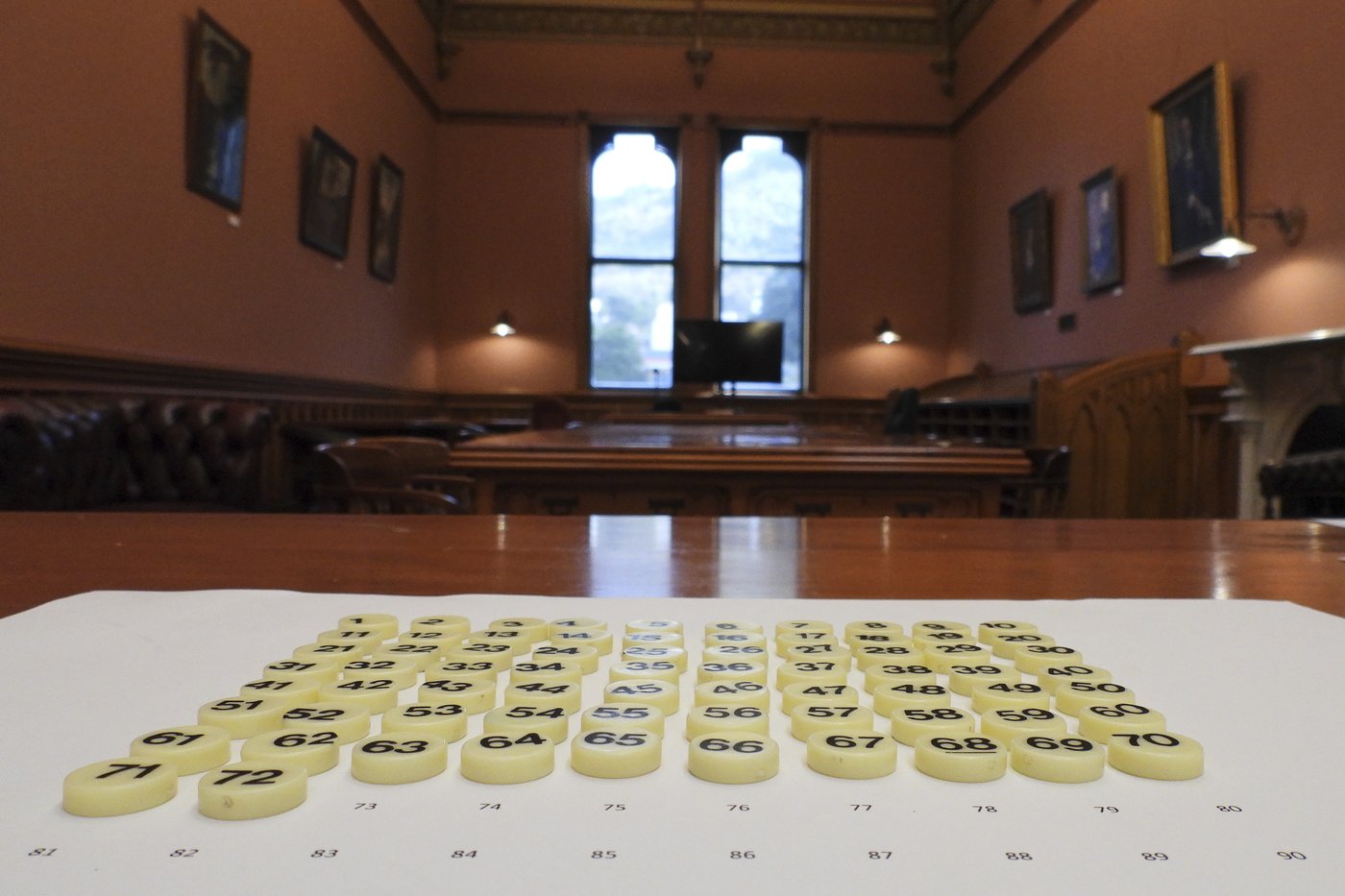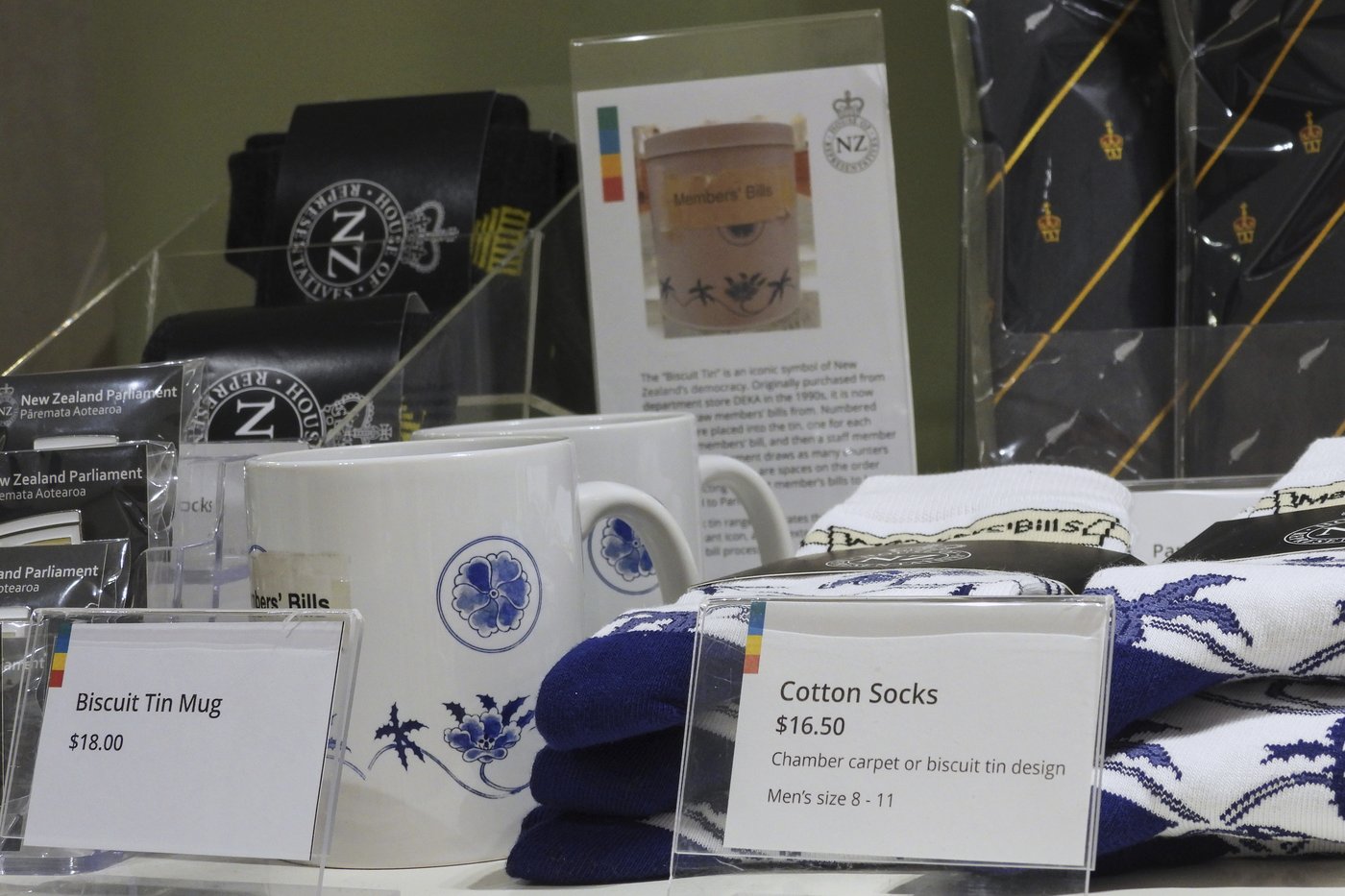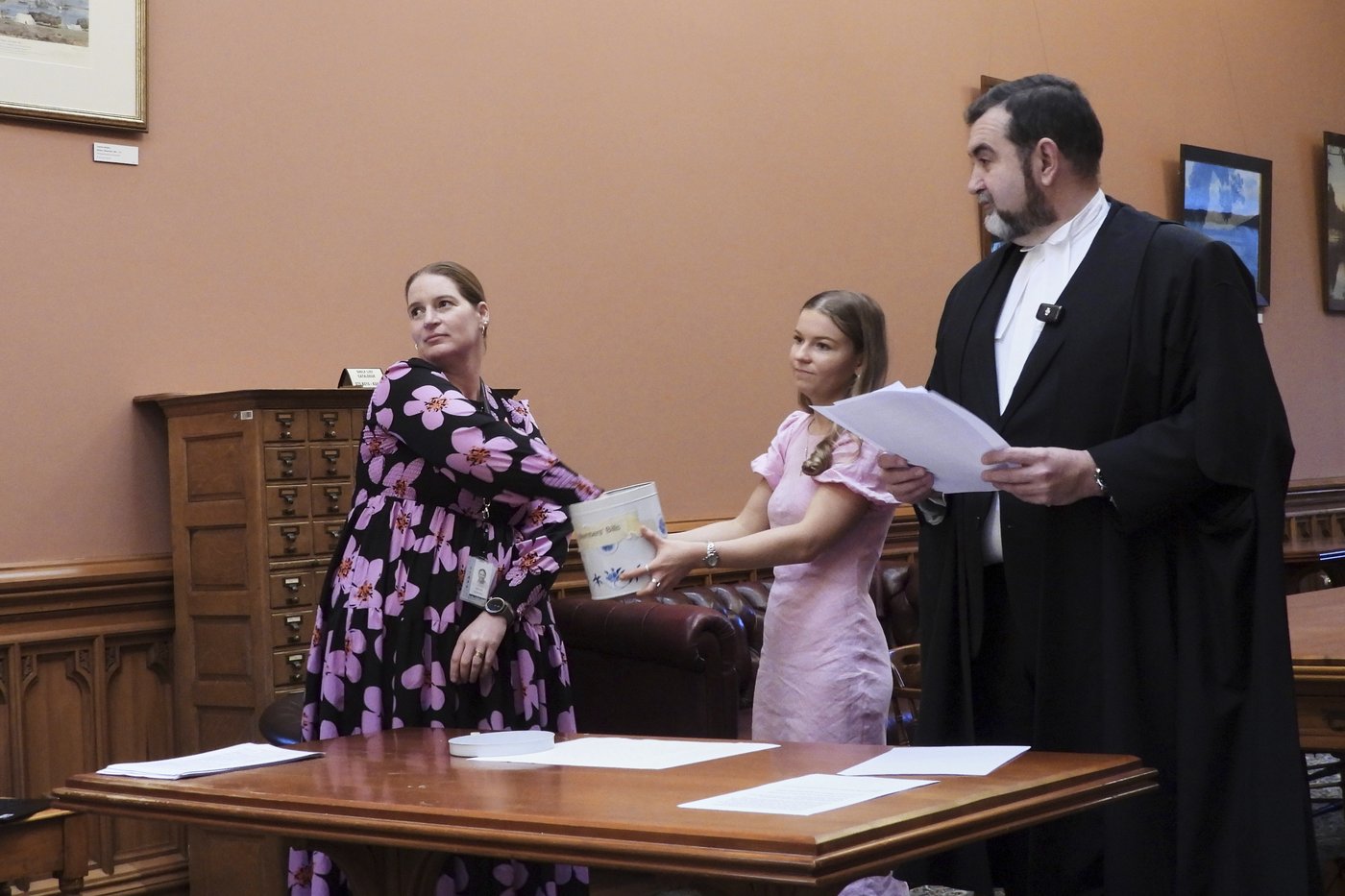How a Cookie Tin Lottery in New Zealand’s Parliament Shapes the Law
Wellington, New Zealand (AP) — In front of a silent crowd and under the watchful eye of an officiant clad in black robes, a ornamental cookie tin shakes akin to a bingo drum. Contained within: the destiny of Wellington’s waterfront redevelopment project.
New Zealand
’s laws.
The ceremonial lottery at
Parliament
Where bills are selected at random from what locals call “the biscuit tin,” this method ensures each New Zealand lawmaker gets an opportunity to propose legislation, regardless of public opinion about their idea. Whenever there happens to be an open spot on Parliament’s schedule, they bring out the worn-out metal cookie container from its display case and quickly organize its ceremonial yet whimsical ritual.

Within the worn container bearing a flaking tag could lie an audacious social program deemed too perilous for political backing, a pragmatic yet unexciting adjustment to legislation, or perhaps a contentious pet project of a legislator that their party would prefer remained silent. The can remains impartial regardless.
An eccentric canister transforms into a democratic instrument
The charmingly designed container purchased at a Wellington department store around the early 1990s by a parliamentary staff member could appear as a joke. However, the ceremonial picking of bills from within this tin holds significant importance. While choices about which bills get discussed by lawmakers in Parliament frequently hinge on behind-the-scenes negotiations and can be influenced by political maneuvers, the use of the cookie tin introduces an element of equality into these proceedings.

We enjoyed the biscuits, obtained some bingo tokens numbered from one up to 90, as far as I recall, and this is how the random numbers are selected nowadays instead of using a computerized system,” explained David Wilson, the Clerk of New Zealand’s House of Representatives. “This has turned into quite an emblematic aspect of our democratic process.

An unusual public ritual
Many laws that make it through New Zealand’s Parliament do not have to go into contention. These bills are included in the governing party’s legislative program and are promoted by high-ranking officials from dominant political groups, ensuring their approval during voting stages.
However, once every two weeks when Parliament convenes, legislation pulled from the cookie jar undergoes discussion. On Thursday, after three spots unexpectedly opened up for new bills, Wilson conducted a lottery in the parliamentary library.
A modest group of staff members and politicians observed as the clerk’s associates dramatically dropped numbered bingo balls symbolizing each piece of legislation into a cookie jar, gave it a shake, and then proceeded to draw them. According to Wilson, those watching would be able to learn via email which bills emerged victorious from this lottery system.
“I simply believe they enjoy how well it performs,” he stated.
Every legislator who is not a minister is allowed to submit one bill per lottery. The draw is conducted by an individual with no ties to any political party, such as school students or guests celebrating their birthday.
Legislative proposals put forward by Members—and the lottery or negotiation processes used to decide which ones proceed—are common elements in Westminster-style parliamentary democracies around the globe. However, Wilson was unaware of any other nation that had such a distinctive ritual.
Tradition replaces overnight scramble
The ceremony started practically, an attempt to halt a procedure that had tired officials previously. In the past, legislators would hurry to the clerk’s office to file bills whenever an opening appeared on the schedule, occasionally waiting in line all night long.
This led to the acquisition of the cookie tin and initiated a custom that merges formal bureaucratic requirements with New Zealand’s lighthearted cultural nonconformity. Those who visit Parliament have the opportunity to purchase mugs and socks adorned with the recognizable blue design from the souvenir store.
Biscuit can container forms key regulations
The lottery has led to several significant contemporary laws in New Zealand. Legislation allowing for marriage equality and voluntary euthanasia was initially pulled from the “cookie tin” before being introduced and ultimately passed following extensive public advocacy initiated by their supporters to influence fellow lawmakers’ viewpoints.
This was the expectation held by two legislators whose proposals were chosen from the ballot on Thursday, and they mentioned they would strive to garner backing across party lines.
Arena Williams aims to push for a legal amendment mandating increased openness regarding charges linked to international monetary transfers. She believes this would particularly assist working individuals sending funds to their relatives overseas. This proposal was one of two initiatives chosen from the hat, surprisingly fortunate for a legislator within her first half-decade in office.
In the meantime, a “thrilled” Tim van de Molen, who introduced legislation aimed at preventing the misuse or inappropriate disposal of military honors, was reveling in his initial legislative success after serving for seven and a half years in Parliament.
It’s an eccentric aspect of our system, which I believe is quite typical of New Zealand,” he remarked. “The system itself is rather straightforward, but it gets the job done.
Charlotte Graham-McLay, The Canadian Press